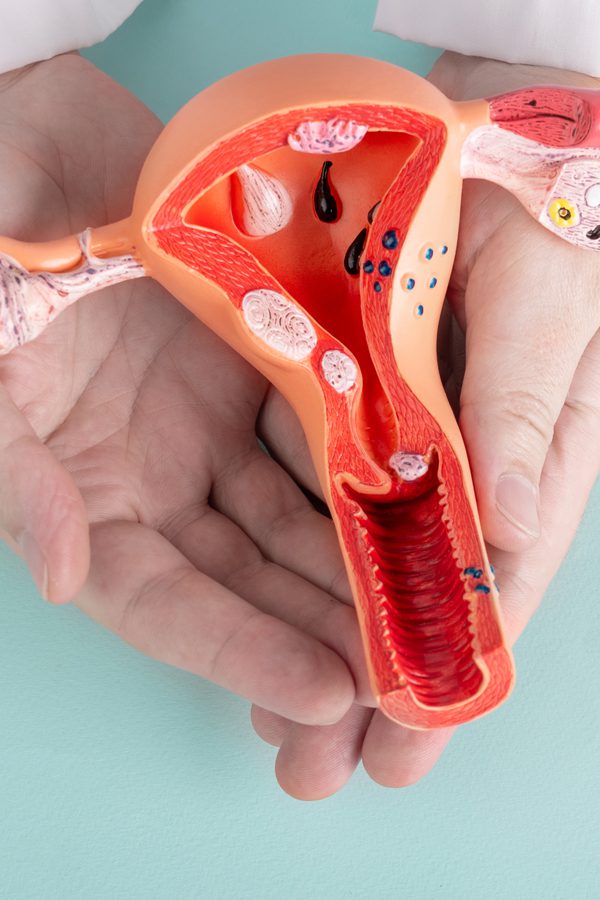Introduction
CAUSES AND RISK FACTORS
The exact causes of gynaecological cancers are not fully understood, but some risk factors have been identified. The most important risk factors are:
Age: The risk of developing gynaecological cancer increases with age.
Family history: Some forms of gynaecological cancer can be inherited.
Smoking: Smoking can increase the risk of womb and cervical cancer.
Human papillomavirus (HPV): This sexually transmitted virus can cause genital infections that can develop into cancer.
SYMPTOMS:
Symptoms of gynaecological cancers can vary depending on the type and stage of the cancer. The most common symptoms are
– Abnormal bleeding: during or after the menopause, between periods or after sexual intercourse.
– Pain in the lower abdomen or pelvis.
– Abnormal or smelly vaginal discharge.
– A feeling of gravity or pressure in the pelvic area.
It is important to see a doctor if you have these symptoms, as they can be caused by other medical conditions or be a sign of gynaecological cancer.


SCREENING AND DIAGNOSIS
Early detection of gynaecological cancers is essential for effective treatment.
Screening tests may include:
– A pelvic examination: During a pelvic examination, the doctor will check for abnormal masses or other signs.
– A cervical smear: this involves taking cells from the cervix and analysing them under a microscope. It can detect precancerous or cancerous cells.
– Pelvic ultrasound: This imaging technique uses sound waves to visualise the pelvic organs and detect any abnormalities.
– Colposcopy: This test uses a special instrument to examine the cervix to detect any abnormal changes.
If gynaecological cancer is suspected, further tests such as biopsies or scans may be done to determine the extent of the disease.
PREVENTION
While there is no safe way to completely prevent gynaecological cancers, there are some factors that can reduce the risk:
- Vaccination against human papillomavirus (HPV): HPV is a sexually transmitted virus that can cause precancerous lesions and gynaecological cancers. Vaccination can help prevent certain types of HPV.
- Practice good intimate hygiene: It is important to wash intimate areas regularly and avoid excessive vaginal showering, which can disrupt the natural balance of vaginal flora.
- Use condoms: The correct and consistent use of condoms can reduce the risk of contracting HPV and other sexually transmitted infections.
- Safe sex: It is important to protect yourself from sexually transmitted infections by having sex with a faithful partner and using condoms.
CONCLUSION
In conclusion, it is important to take care of your gynaecological health by having regular check-ups and adopting healthy habits.
If there are any abnormalities or worrying symptoms, it is important to see a specialist for assessment and appropriate treatment.
Prevention can also play a key role in reducing the risk of developing gynaecological cancers.
Together, by taking care of ourselves and raising awareness, we can work towards better gynaecological health for all women.
We hope this guide has helped you learn more about the importance of gynaecological health and how to maintain it.


